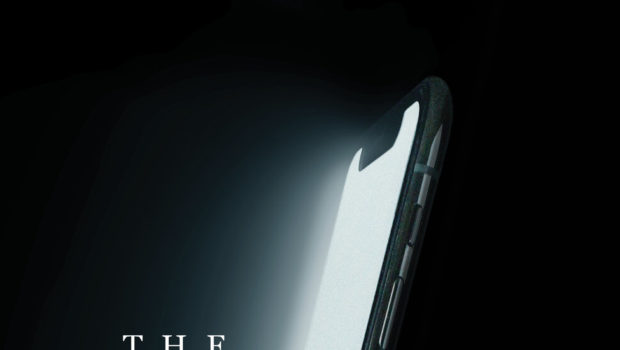In Don DeLillo’s New Novel, Technology Is Dead. Civilization Might Be, Too.
Martin’s glosses on quantum physics lead to the proposal that something has happened not just to technology but to time itself: “Are we living in a makeshift reality? … A future that isn’t supposed to take form just yet?” Relativity theory proposes that no events, and certainly no perceptions of events, can be said to be absolutely simultaneous. In effect, there can be no present; time might be reversible, but it cannot be stopped, so the Now cannot exist except as fiction. Martin’s argument appears to be that without technology, this lack of a present — or the fictionality of the present — will once again become palpable to our experience. Without technology to connect us, we’ll become aware that each of us lives in our own discrete, individual present, which has nothing in common with those of our partners, our families, our neighbors, and it will make us insane.
As if to furnish proof, Max responds to Martin’s Einstein with Al Michaels or maybe Howard Cosell. He sits in his chair and stares at the screen and voices an imaginary play-by-play and color commentary to the game he’s been denied, the game he can’t even be sure is still happening: “This team is ready to step out of the shadows and capture the moment.” And: “During this one blistering stretch, the offense has been pounding, pounding, pounding.” And: “Ground game, ground game, crowd chanting, stadium rocking.” And “De-fense. De-fense. De-fense.” Between the calls of this fantasy football, Max even takes commercial breaks: “Wireless the way you want it. Soothes and moisturizes. Gives you twice as much for the same low cost. Reduces the risk of heart-and-mind disease.”
Into this roiling, claustral stage-business that travesties ESPN, PBS, TED Talks, cuck-porn and Dada (the greatest innovation of fin de siècle Zurich, after relativity) come the missing links from the book’s opening chapter. Jim, suffering a head injury, and Tessa, suffering Jim, arrive late but with the excuse of having survived a crash landing: “When everyone was seated, here, there, the newcomers spoke of the flight and the events that followed and the spectacle of the Midtown streets, the grid system, all emptied out.”
Part 2 of “The Silence” can now begin, and the end is nigh.
A writer of the present is almost always an apocalypst, and it’s the privilege of every generation to think itself the last, though the generations that wrote after the Bomb had a better justification for their panic. The novelists of DeLillo’s generation expected the end of the world through nuclear calamity, but of them only a few still remain alive to countenance the change: namely, the increased chance of the world ending not with a bang, or even a whimper, but in silence; the silent melt of the poles, the silent rise of the seas; the silent seethe of a breath-stifling plague; or, in this novel, the silence that follows the blackout of our external brains, those silicon-celled devices to which we’ve transferred our timekeeping and cultural artifacts, our medical and legal records, our genetic sequences, our nudes, our novels, our pasts. This is the eschaton through lack of access, but also through human atrophy, debility, the desuetude of critical function. Per Max: “We’re being zombified. We’re being bird-brained. … I’m done with all this. Sunday or is it Monday? February whatever. It’s my expiration date.”
The oddest stretches of DeLillo’s book revel in this dumbness, and dare the reader to decry it: Einstein’s statements are occasionally misquoted (such as the novel’s epigraph, which can be found on Wikiquote, but not in Einstein’s papers); the German Freitod is translated literally as “free death,” though it means “suicide”; when Martin is asked to say something in German he responds with what we’re to understand is a windy statement, and then when he’s asked to give a translation, he replies with a definition of capitalism that, as the writer Justin Taylor pointed out to me, comes not from Marx but verbatim from the American Heritage Dictionary. Elsewhere, the imprecisions are more oblique: Elements of relativity theory seem to be jumbled up with elements of Wittgenstein’s language theories (the seven-chapter form of the novel appears to owe something, though I’m not sure what, to the seven numbered sections of the “Tractatus”).
What tells me that these lapses are purposeful, intended as comic commentary on the tragedy of our forgetting, is the way they’re presented alongside more pernicious misimpressions: fake news, conspiranoia, theories of informational relativity. Among them: The world is a simulation run by time-manipulating aliens; time has accelerated, or collapsed, or we just perceive it in that way because “our minds have been digitally remastered,” or because we’ve been poisoned by “plastics,” or “microplastics.” What began as dialogue, gathered energy as trialogue, and peaked as pentalogue, soon topples like a Babel tower and disperses into monologues of unconsoled dissociation: five separate “friends” unable to communicate, unable to connect, unable even to remember, nattering to themselves like lunatics, haunting the hallways, counting the stairs.








Gloss